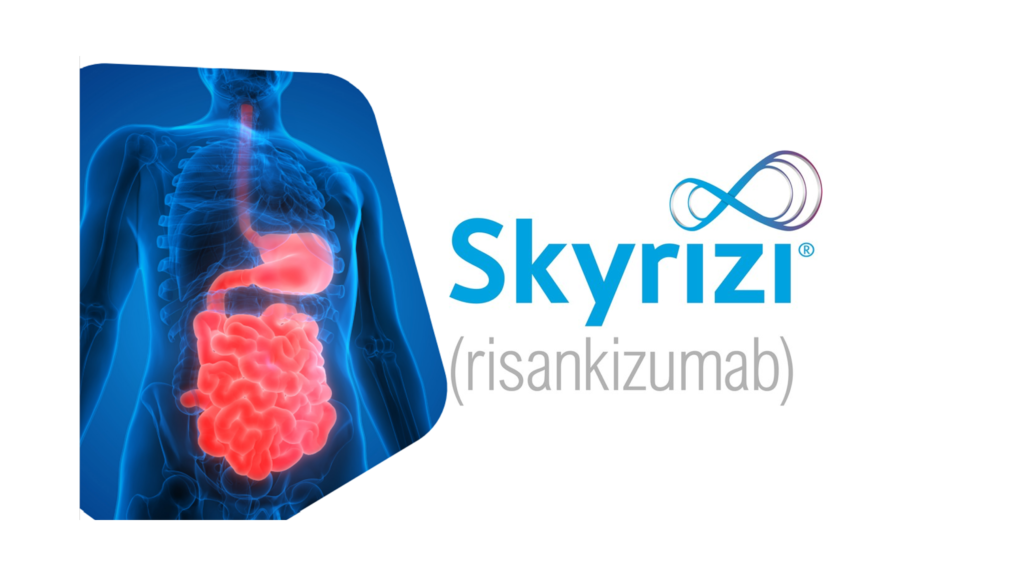Crohn’s disease is a chronic, progressive, systemic inflammatory disease of the gastrointestinal (GI) tract under the umbrella of immune diseases caused by the involvement of interleukin-23 (IL-23), a cytokine involved in inflammation. Crohn’s disease patients experience debilitating symptoms including abdominal pain, persistent diarrhea, fatigue, weight loss and malnutrition. These symptoms often lead to patients requiring urgent medical care.
Crohn’s commonly affects the small intestine but can progress to deeper layers of the GI tract. It may be caused by the immune system being triggered by a virus or bacteria that results in an atypical immune response, or genetics play a role in disease development as it is more common in people whose immediate family members have Crohn’s disease. Additional factors include one’s ethnicity (people of Ashkenazi Jewish descent are most affected), smoking cigarettes and frequent use of NSAIDs like Advil, which are harmful to the intestinal lining.
There is no cure for Crohn’s disease, but existing therapies provide enough symptom relief to cause remission and intestinal healing, allowing patients to function. Common treatments include aminosalicylates, corticosteroids, immunomodulators and biologic therapies.
On November 23, 2022, AbbVie announced in a press release that their biologic treatment, Skyrizi (risankizumab), was approved by the European Commission (EC) for the treatment of moderately to severely active Crohn’s disease in adults.
Skyrizi is the first specific IL-23 inhibitor treatment for people who have had either inadequate or lost response to conventional or biologic therapies, or experienced intolerance. Patients are administered 600 mg intravenously (IV) for induction and 360 mg subcutaneously as maintenance therapy. Skyrizi selectively blocks IL-23 by binding to its p19 subunit, thereby reducing the inflammatory response.
XTALKS WEBINAR: Building Efficiency into Biologics Formulations Development
Live and On-Demand: Wednesday, December 14, 2022, at 1pm EST (10am PST)
Register for this free webinar to learn about biologics formulations development tools, tricks and methods and ways to utilize these in pragmatic and efficient ways.
EC Approval of Skyrizi Supported by Global Phase III Trials
Three multicenter, randomized, double-blind, placebo-controlled studies from a global Phase III program supported the approval of Skyrizi. The ADVANCE induction, MOTIVATE induction and FORTIFY maintenance trials evaluated the efficacy, safety and tolerability of risankizumab. The primary endpoints included clinical remission, endoscopic response and mucosal healing.
In the ADVANCE and MOTIVATE induction trials, patients with moderately to severely active Crohn’s disease were given 600 mg and 1200 mg IV of risankizumab as induction therapy, and patients in the FORTIFY trial received 180 mg and 360 mg of risankizumab subcutaneously as maintenance therapy.
In the ADVANCE and MOTIVATE induction trials, a significantly greater proportion of patients treated with 600 mg achieved the primary co-endpoints of clinical remission (43 percent and 35 percent, respectively) and endoscopic response (40 percent and 29 percent, respectively) at week 12. Less than 22 percent of patients receiving placebo achieved either endpoint in the studies.
In the FORTIFY maintenance trial, significantly more patients treated with 360 mg achieved clinical remission (52 percent) and endoscopic response (47 percent) compared to patients receiving placebo (40 percent and 22 percent, respectively), at week 52.
The primary co-endpoints of mucosal healing and endoscopic remission were also evaluated. In the ADVANCE and MOTIVATE induction studies, patients receiving 600 mg achieved mucosal healing at a significantly higher rate (21 percent and 14 percent, respectively) than patients receiving placebo (8 percent and 4 percent) at week 12. Similarly, 24 percent and 19 percent of patients receiving Skyrizi achieved endoscopic remission compared to 9 percent and 4 percent of patients receiving placebo.
In the maintenance trial, 31 percent of patients receiving 360 mg achieved mucosal healing at week 52, compared to 10 percent of placebo patients (nominal p < 0.001). In terms of endoscopic remission, 39 percent of Skyrizi patients achieved the endpoint compared to 13 percent of placebo patients (nominal p < 0.001).
A Step Forward, with a Cost
Overall, the safety results of Skyrizi in the Phase III studies were consistent with its known safety profile. The most common side effects were headaches, nasopharyngitis, fatigue and joint pain. In the FORTIFY trial, exacerbation of Crohn’s disease was also observed.
“Research advancements have made it possible for patients to aim for higher treatment goals, including mucosal healing. The approval of Skyrizi as the first IL-23 inhibitor for moderate to severe Crohn’s disease is a critical step forward towards a treatment option that can support a patient’s health goals,” said Marc Ferrante, MD, PhD, University Hospitals Leuven, Belgium.
Although Skyrizi is a promising treatment for those experiencing severe Crohn’s disease, it is a costly treatment without insurance, with one dose of Skyrizi costing $18,272.79 USD as of January 2022. Soaring prices are also common in the United Kingdom when receiving the medication for psoriasis, for example. However, insurance like Medicaid can bring the costs of Skyrizi down significantly to less than $20 per dose up to just over $3000 per dose.












Join or login to leave a comment
JOIN LOGIN